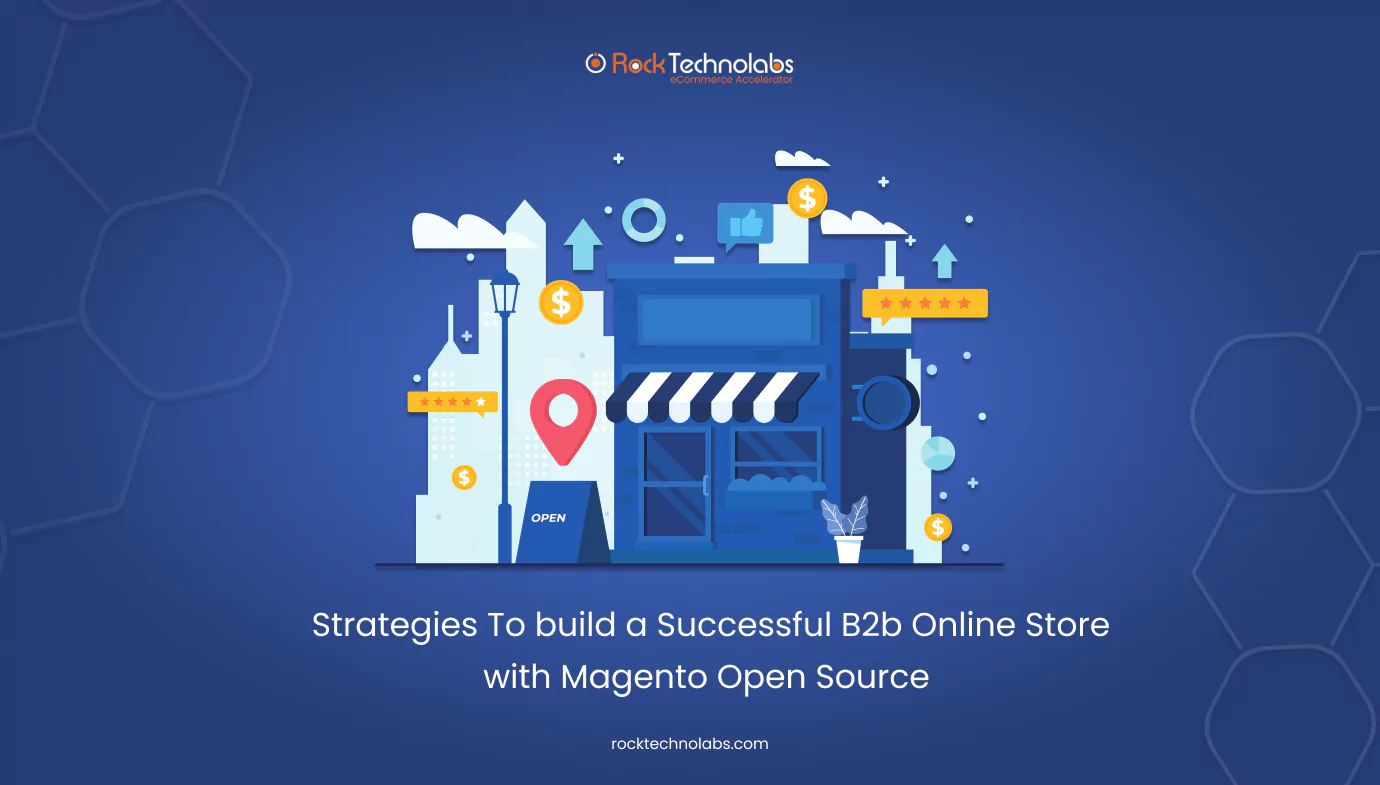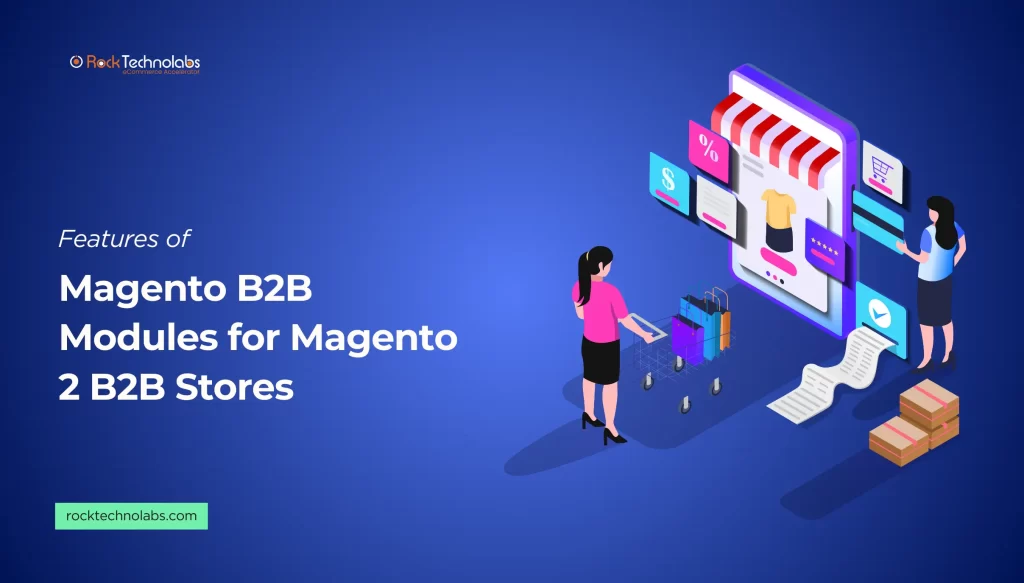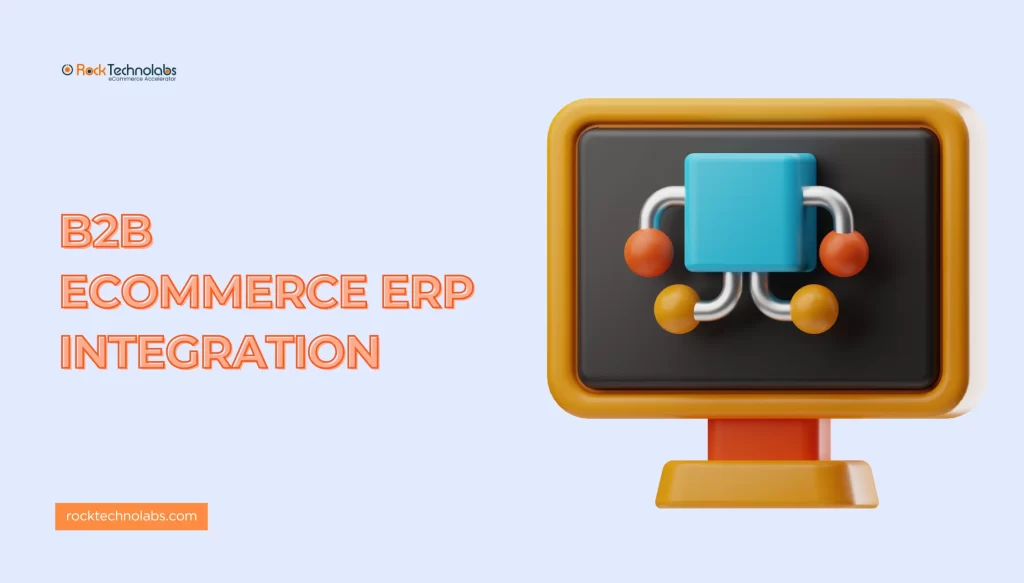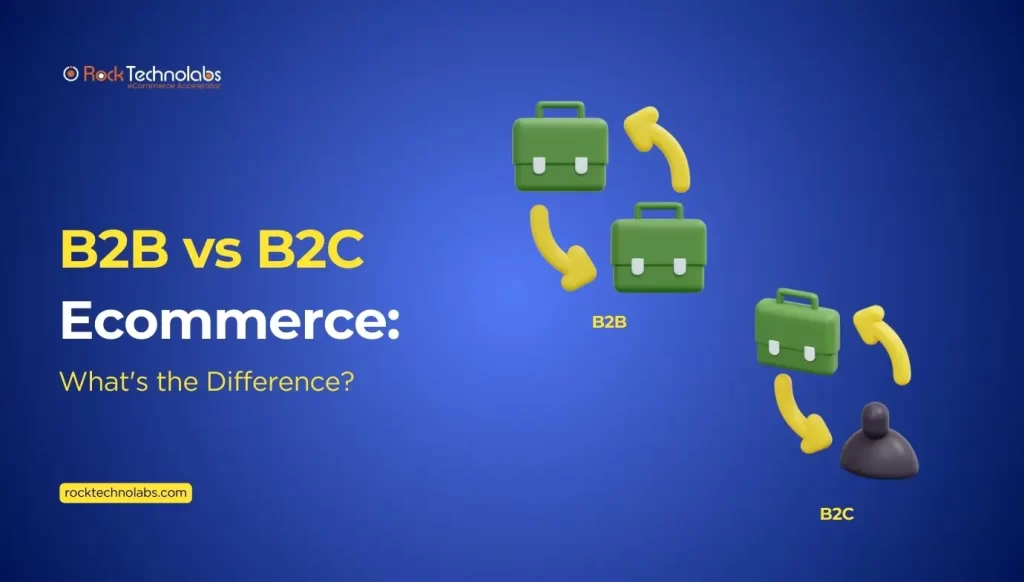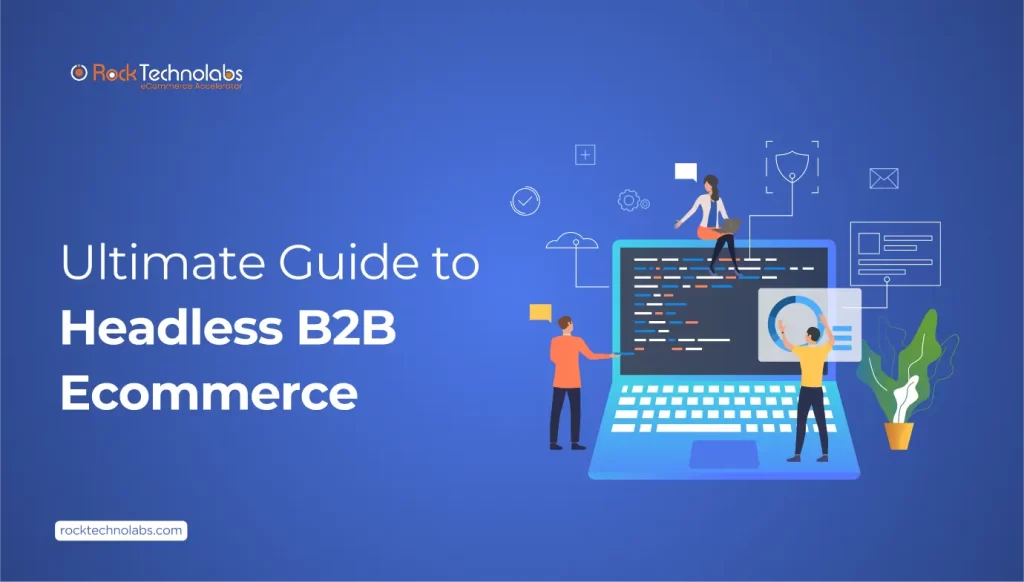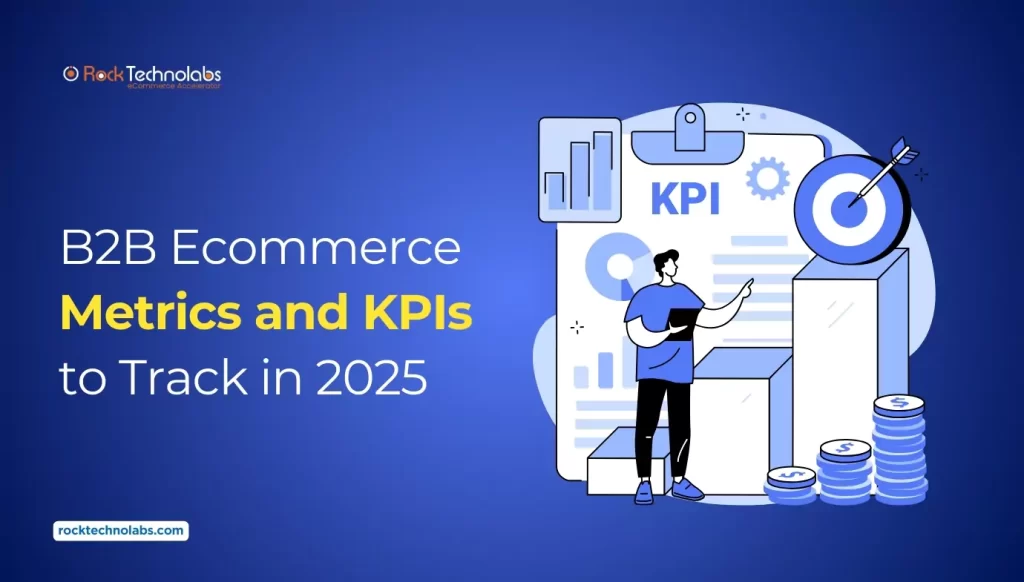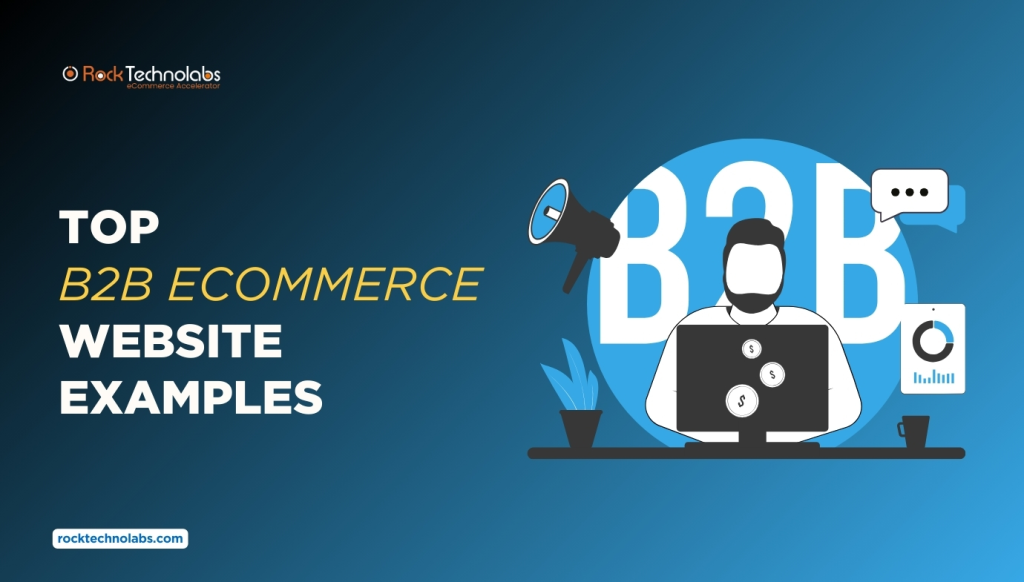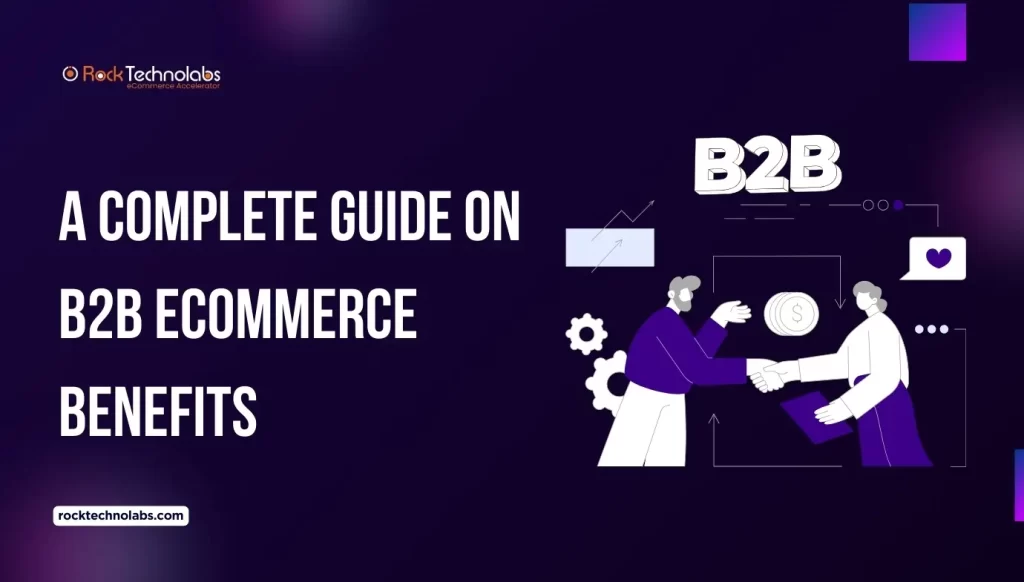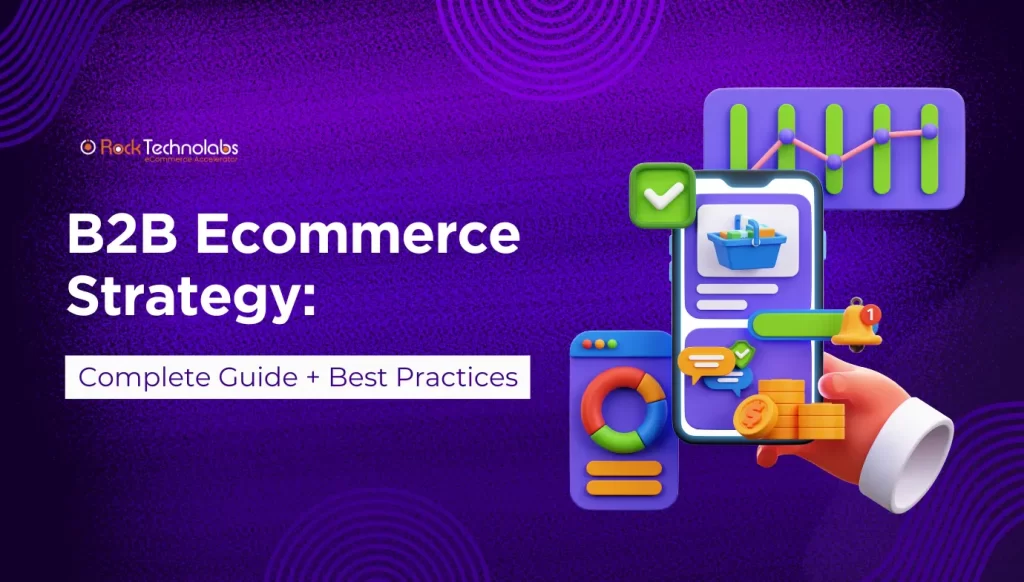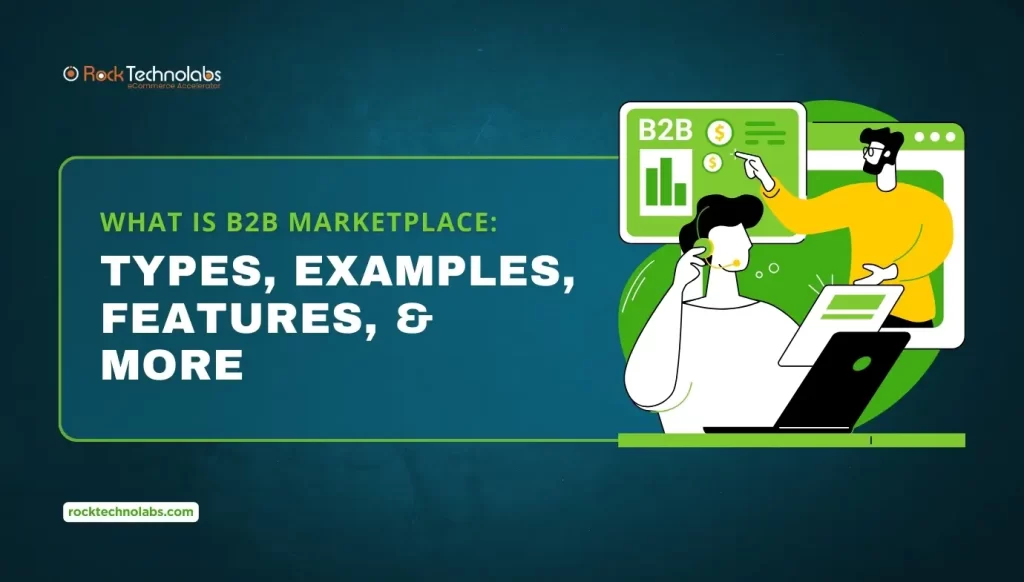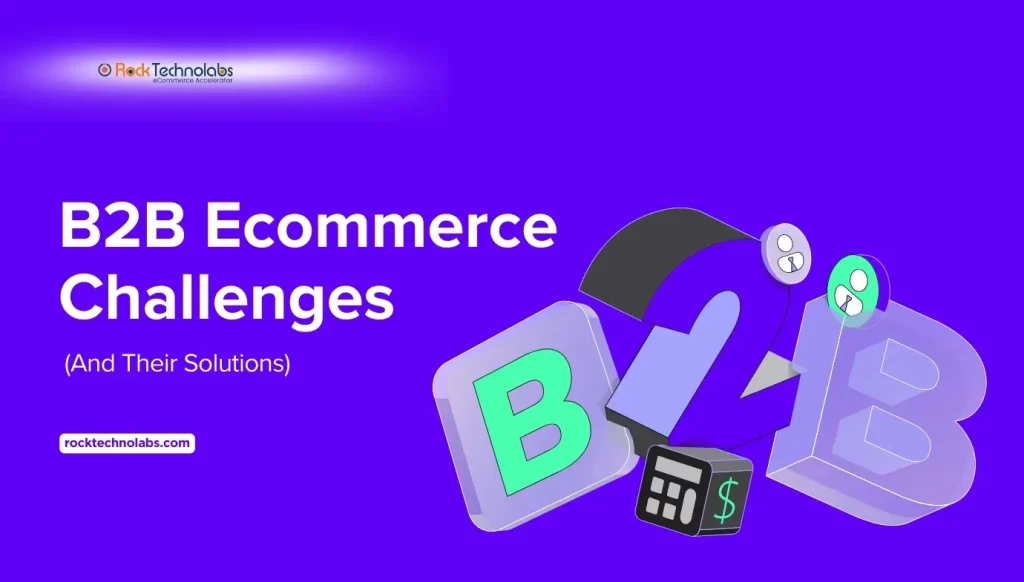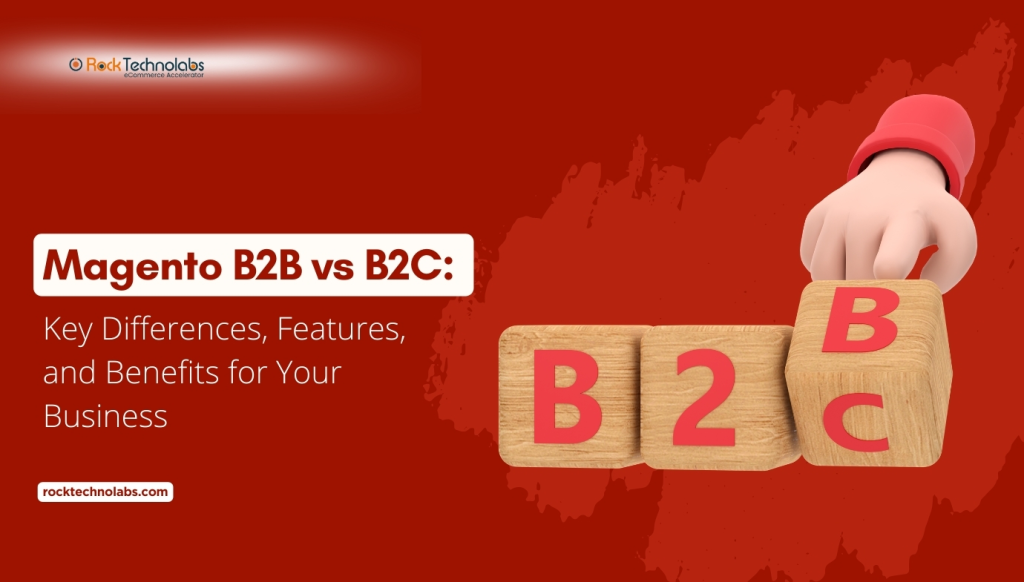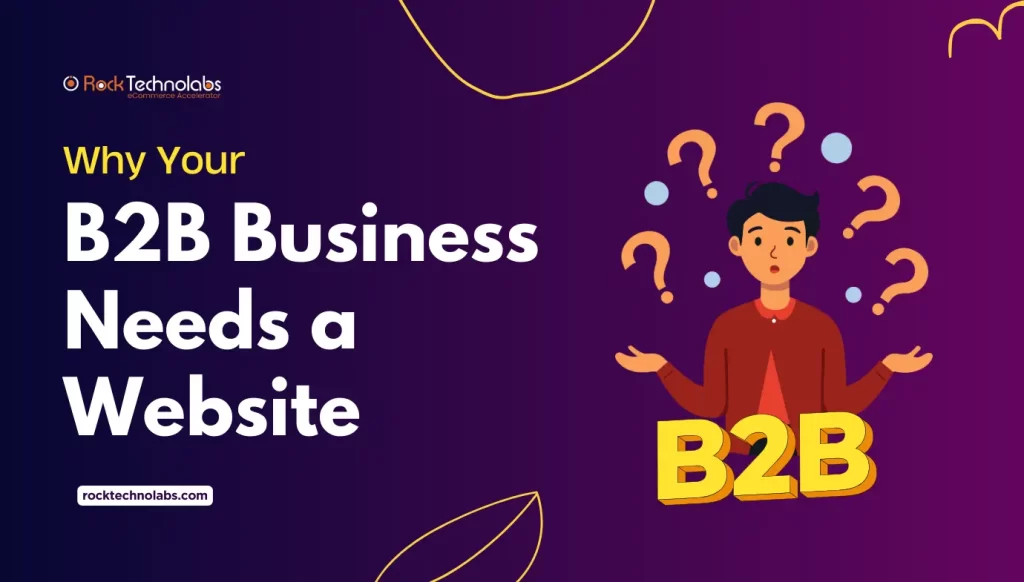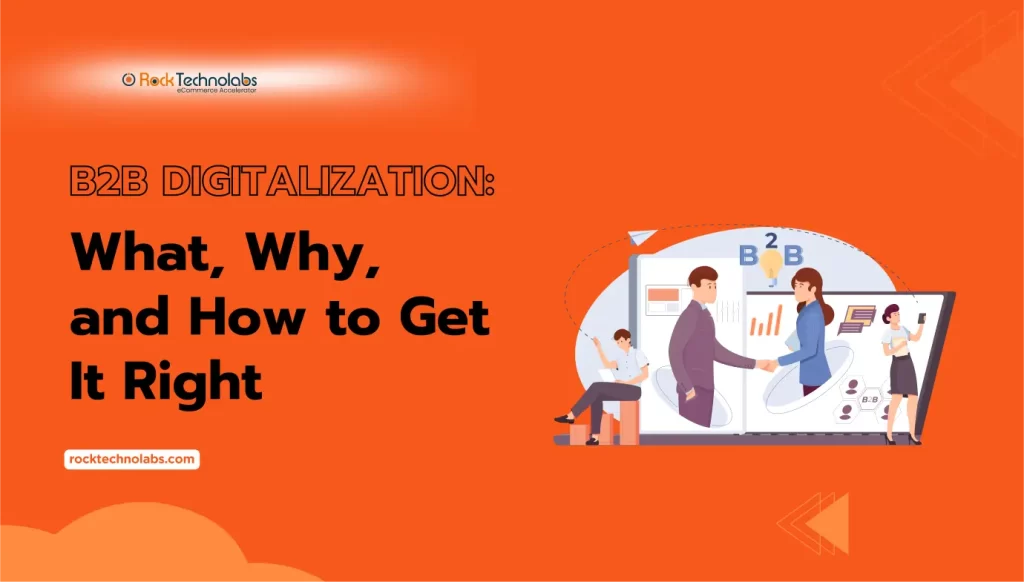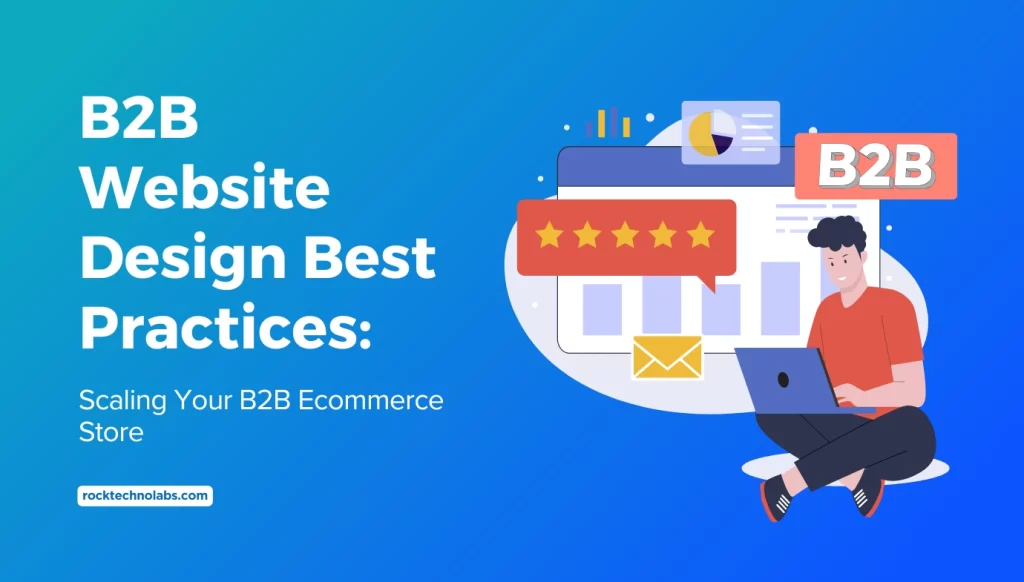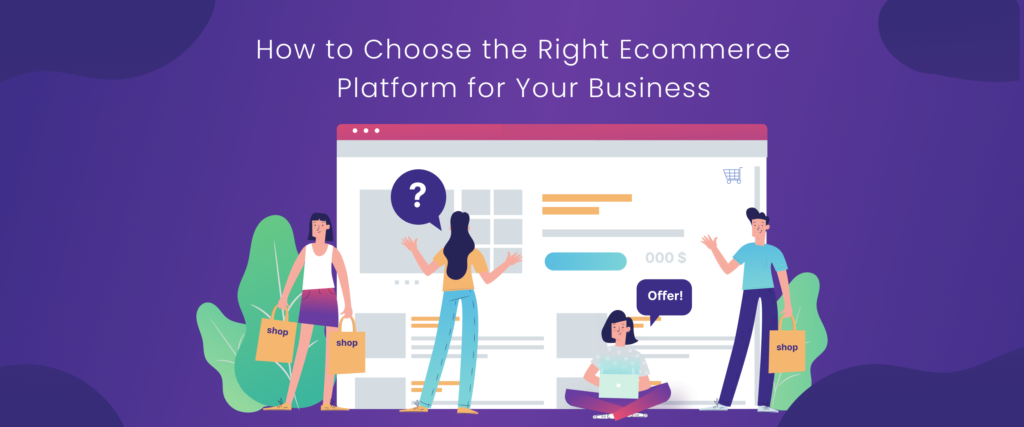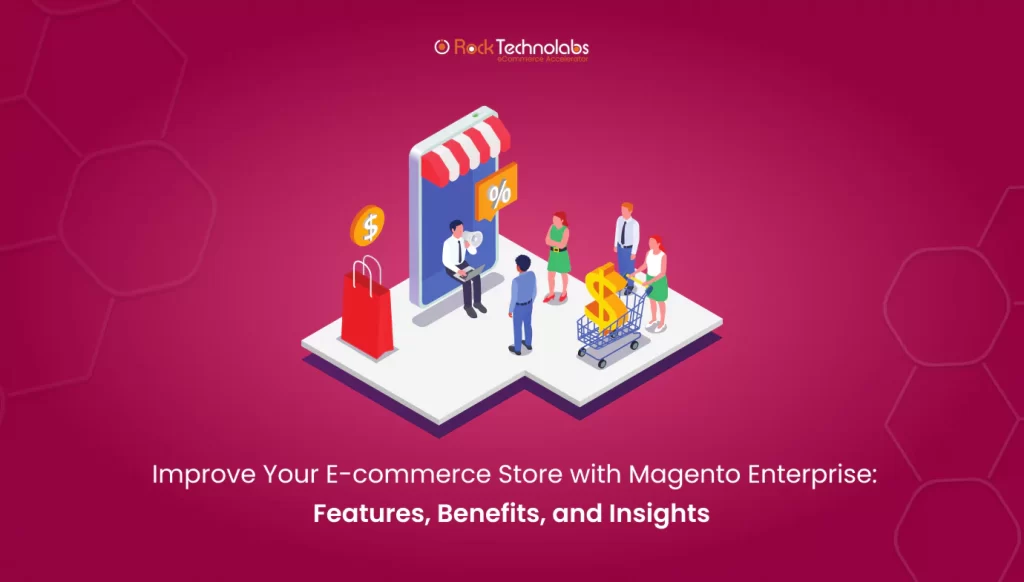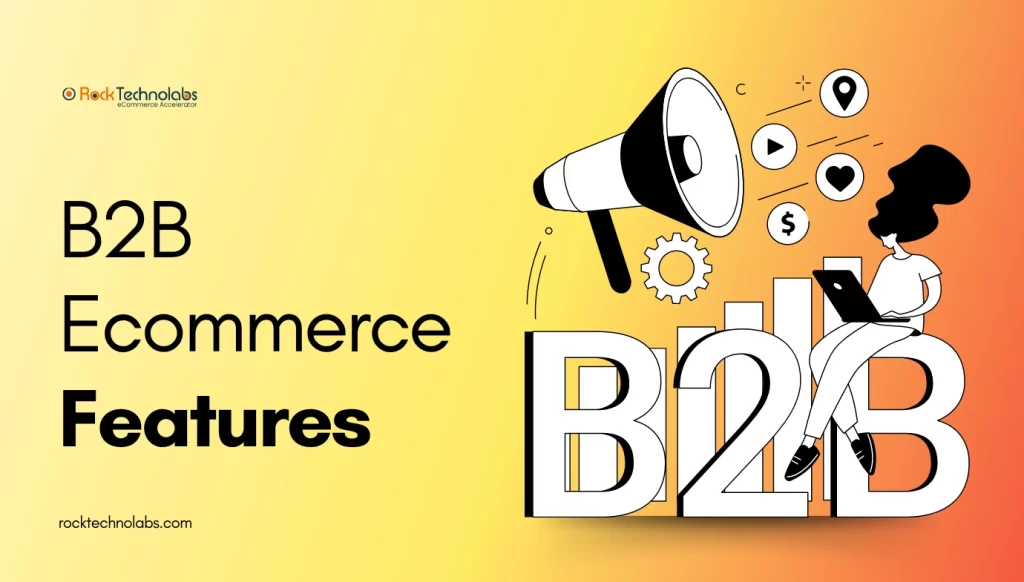Before the digital transformation reshaped commerce, businesses primarily conducted transactions with other companies through face-to-face interactions and catalogue orders. But now the times have completely changed especially since the introduction of ecommerce in the B2C and B2C industries. Today business buyers or retailers demand the same hassle-free, user-friendly, and digital shopping experiences they enjoy in their personal lives.
Due to such ongoing escalating demands continuing to rise, b2b commerce is rapidly opting for a different approach to satisfy their customers. Vendors are beginning to apply strategies and provide more services typical of B2C e-commerce. E-commerce has become a crucial investment area for b2b companies, even from 2020 to 2022, global b2b e-commerce sales on existing platforms surged by 95%.
However, creating a thriving Magento b2b development online store requires more than just a basic platform—it demands a sophisticated solution tailored to the complexities of business transactions. Magento Open Source provides a foundation of unparalleled flexibility and customisation, but building on it effectively is key to achieving true success. This comprehensive guide breaks down the b2b features of Magento open source that can transform your Magento store into a powerhouse of b2b eCommerce.
Furthermore, we’ll cover strategies in the same pointers to discover how Magento b2b development can help you foster trust and increase customer retention. Whether you’re just starting or looking to optimise your existing store, this guide equips you with the insights needed to unlock the full potential of Magento Open Source for b2b eCommerce development, turning your platform into a key driver of business growth and success.
Essential Magento 2 b2b Features You Should Explore For Magento b2b development To Increase Sales
Building and launching a b2b eCommerce development store can be a complex and costly process. Fortunately, Magento 2 open source simplifies this challenge by offering a range of powerful features tailored to the needs of b2b businesses. Below are some key Magento open source b2b features that make creating a robust and efficient b2b eCommerce website much easier:
1. Advanced Account Management
Unlike B2C shoppers, b2b customers are often represented by multiple individuals who use a single account on behalf of their organisation. These customers are typically groups of decision-makers rather than just one person. Magento 2 addresses this need by allowing store owners to create and manage separate accounts for different b2b buyers within a company. Store owners can set up a primary account for the organization, and the account administrator can create sub-accounts with varying levels of permissions. This feature enables b2b buyers to delegate roles, manage resources effectively, and track relevant data such as wish lists, orders, and company credits.
2. Personalized Catalogs
Magento b2b development features offer customized catalogue features that help merchants deliver a tailored experience to b2b customers. Merchants can present two types of catalogues to users:
- Public Catalog: Accessible to all website visitors.
- Custom Catalog: Exclusive to specific companies, allowing them to view special offers and discounts tailored to their needs.
This functionality enables b2b businesses to reach a broad audience while offering personalized experiences and exclusive deals to their loyal customers.
3. Flexible Custom Pricing
Pricing plays a vital role in converting b2b website visitors into customers. An effective pricing strategy can boost customer loyalty and repeat purchases. With Magento development for b2b, price management becomes explicit when it comes to enabling you to offer competitive pricing and customized options to your b2b customers.
The platform supports features like price negotiations, quote requests, and the ability to hide prices from certain customer groups. This flexibility helps businesses build stronger relationships by encouraging customers to engage directly for quotes, enhancing satisfaction and engagement.
4. Adobe Business Intelligence Integration
Business Intelligence (BI) is critical for providing personalized experiences to b2b buyers. Adobe BI, a separate service in Magento b2b development, integrates seamlessly to offer an intuitive dashboard for monitoring business performance and generating insights. With this tool, you can track essential e-commerce metrics such as Customer Lifetime Value (CLV), Average Order Value (AOV), conversion rates, and retention rates, enabling data-driven decision-making.
5. Company Account
The Magento 2 Company Account module is a vital tool for b2b eCommerce sites, even though it’s similar to the functionality available in Magento Commerce. It provides a central company account, which allows multiple team members to access it through individual sub-accounts. This structure is particularly useful for organizations where different individuals are involved in making purchasing decisions.
This Magento b2b development module enables the creation of company accounts from both the front and back-end. Admins can review, approve, or deny registration requests and assign specific roles and permissions to sub-accounts, ensuring that each user has the appropriate level of access. This feature streamlines the purchasing process for b2b customers, making it easier for businesses to manage their accounts and interactions with the store.
6. Company Credit
When loyal customers are in urgent need of your products but lack the immediate funds, the Company Credit module from the Magento 2 b2b features suite provides a practical solution. This feature allows businesses to issue Purchase Order (PO) numbers for invoices, enabling customers to delay payment and complete transactions at a more convenient time.
With this add-on feature, you can establish credit limits and monitor outstanding balances, offering flexibility in payment terms without compromising financial security. It helps foster stronger relationships with customers by accommodating their financial needs and encouraging continued business, even when immediate payment is not feasible.
7. Streamlined Quick Orders and Orders by SKUs
B2B customers often need to place bulk orders quickly and efficiently. Magento 2’s Quick Order feature allows them to do just that by enabling bulk ordering using SKU numbers. Buyers can add multiple products to their cart in one go, either by entering SKU numbers and quantities or by uploading a CSV file. This time-saving feature provides an optimized buying experience and helps increase sales.
8. Real-Time Inventory Management
Magento b2b development simplifies inventory management by syncing data across multiple sales channels in real-time. This feature helps businesses monitor stock levels efficiently and make informed decisions. By maintaining a balanced flow between end-users and warehouses, companies can streamline their supply chain operations.
9. Enhanced Security
Security is a top priority when it comes to Magento b2b development, especially when handling sensitive customer data and processing payments. Magento 2, under Adobe Commerce, is PCI-compliant as a Level 1 solution provider, ensuring a secure environment. While store owners still need to certify their specific stores, the process is significantly simplified with Magento’s built-in security features.
10. B2B Registration
B2B registration is an essential feature for managing and verifying customer information, particularly for corporate accounts involved in wholesale transactions. The Magento b2b development registration extension offers a dedicated registration form specifically designed for wholesale customers looking to join your eCommerce platform. This form gathers unique details that differ from those required for typical B2C customers, ensuring that all necessary business-related information is collected.
While the registration form can be partially customized, it is recommended to use it alongside other compatible extensions, such as the Customer Attribute extension, for more extensive modifications. This combination allows for additional fields and customizations, providing a more thorough and tailored registration process for your b2b customers.
11. Minimum Order Amount
The Minimum Order Amount for Customer Group feature is exactly as its name suggests—simple and effective. While the default Magento 2 and b2b Commerce editions do not include this capability, it can be added via an extension if needed. As a growing b2b eCommerce store owner, you may want to ensure that wholesale pricing is applied only when customers order a specified minimum quantity of a product to maximize profitability.
With the Magento 2 Minimum Order Amount for Customer Group extension, you can easily configure the required minimum order amount for different customer groups. Additionally, you can disable the checkout button if the order quantity doesn’t meet your criteria, preventing the completion of transactions that don’t align with your business objectives. You also have the option to personalize the error message displayed on the product page, providing clear instructions to customers about the minimum order requirements, making it a versatile tool from the Magento 2 b2b features suite.
12. Reorder Product List
For Magento b2b developed businesses, a streamlined reorder process is essential to optimize the buying experience for wholesalers. Unfortunately, this functionality is not adequately addressed in the Magento 2 Open Source edition. Although the Requisition List offers a similar feature, it is only available in the more costly Magento 2 b2b Commerce edition.
To efficiently place bulk orders, the Magento 2 Reorder Product List extension is a valuable addition from the Magento 2 open source b2b features list. This extension allows users to place orders through a grid list that displays all previously purchased products, complete with names and SKUs. The integrated search bar enhances the functionality by allowing users to quickly find items and view product information. This setup simplifies the reordering process, making it even more user-friendly than the Requisition List, and providing a practical solution for b2b businesses looking to improve their operational efficiency.
Does Magento Open Source Support b2b Features?
Although you can set up a b2b eCommerce store with Magento Open Source, it requires extensive customizations and third-party extensions to include many of the native features available in the Magento 2 Commerce edition. As Adobe (the company behind Magento) does not include a comprehensive suite of b2b functionalities in the Open Source version, building a robust b2b store will require experienced Magento 2 developers skilled in programming and customization.
Moreover, you can take advantage of all the above-mentioned features to create a properly navigational, and attractive-looking store. However, if you need help, Rock Technolabs is available 24/7 for any assistance in terms of Magento b2b development and end-to-end other Magento 2 development services.


